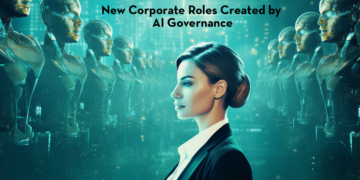In a swiftly changing business environment, ensuring your organization is prepared for the future necessitates the development of leaders who are capable of adapting, innovating, and inspiring. Leadership training should extend beyond conventional management skills to prepare both current and future leaders for the challenges that lie ahead. Below are ten effective leadership training concepts designed to foster a resilient and future-ready organization:
Emotional Intelligence (EQ) Development
Future leaders require more than just technical abilities. Training initiatives that emphasize self-awareness, empathy, and relationship management enhance team dynamics and promote inclusive, effective leadership.
Digital Literacy and Tech-Savviness
Empower leaders with a comprehensive grasp of digital tools, data analytics, and the integration of AI. A leader proficient in technology can spearhead digital transformation and make well-informed, strategic choices.
Change Management Training
Instruct leaders on effectively steering teams through periods of change with assurance. Education in agile practices, crisis management, and effective communication facilitates more seamless transitions amid disruptions.
Cross-Generational Leadership Skills
Educate leaders on how to effectively manage and inspire teams composed of multiple generations. Grasping the values and communication preferences of different generations fosters improved collaboration and boosts employee engagement.
Design Thinking and Innovation
Integrating design thinking into leadership development fosters both problem-solving abilities and creative thinking. This methodology enables leaders to address challenges through user-focused solutions.
Resilience and Stress Management
Resilient leaders exemplify well-being and determination. Training in stress management strategies, mindfulness practices, and work-life balance fosters sustained productivity and mental wellness.
Diversity, Equity, and Inclusion (DEI) Leadership
Enable leaders to advocate for Diversity, Equity, and Inclusion (DEI) by conducting workshops that examine unconscious bias, inclusive leadership techniques, and fair decision-making.
Coaching and Mentorship Skills
Leaders who serve as coaches propel team development. Training in active listening, providing constructive feedback, and offering career mentoring cultivates a culture of growth and trust.
Strategic Thinking and Vision Planning
Future leaders need to have a comprehensive perspective. Initiatives that emphasize strategic planning, scenario analysis, and the establishment of long-term objectives enhance organizational foresight.
Global and Cross-Cultural Competence
As the nature of work becomes more globalized, leaders are required to adeptly manage cultural subtleties. Training in intercultural communication is essential for developing global leadership skills and enhancing market responsiveness.
Investing in leadership development through these innovative concepts equips your organization to excel in the face of complexity and change. By fostering adaptable, inclusive, and visionary leaders, you establish a groundwork for enduring success in an uncertain future.






